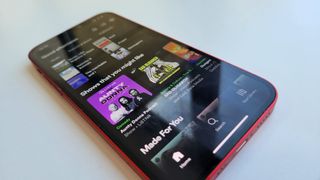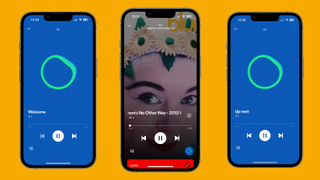Audio Apps
Explore Audio Apps
Latest about Audio Apps

This cute character holds your Beats Pill — and costs $500
By Lloyd Coombes published
Artist Verdy is releasing the new Vear Toy to hold your Beats Pill, but it'll set you back $500.

Spotify's Car Thing was a cool in-car streaming display for your songs — and soon, it'll be absolutely useless as the music stops for good
By Oliver Haslam published
Spotify says that Car Thing accessories will stop working as of December 9, 2024. After that point, you can use yours as a doorstop but little else.
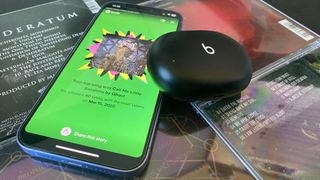
Apple appeals a $1.9 billion EU fine levied following Spotify's claims of anti-competitive App Store behavior
By Oliver Haslam published
Apple has reportedly chosen to fight a $1.9 billion fine imposed by the EU over claims that its App Store rules were anti-competitive.

Spotify's lossless music support could finally be on the way via the Music Pro add-on instead of a whole new tier
By Oliver Haslam published
Spotify's lossless music offering might finally be on the way as part of the Music Pro add-on.

Ex-Apple Music exec and Nine Inch Nails star Trent Reznor slams streaming services
By Tammy Rogers published
Trent Reznor of Nine Inch Nails fame has strong words about music streaming.
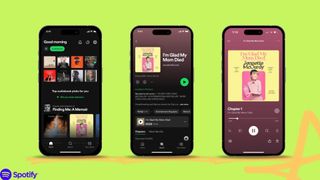
Spotify will hike its prices again, report claims, as it attempts to pay for its expansion into podcasts and audiobooks
By Oliver Haslam published
Spotify is reportedly ready to increase its prices in some key markets as it battles to pay for its venture into new audio categories.

Spotify takes on Apple Music with its own music videos in 11 countries
By Oliver Haslam published
Spotify is rolling music video support out to 11 countries starting today, but there's one notable absence.

Sorry users of rooted Android devices, Apple Music isn't going to work for you anymore
By Tammy Rogers published
Users of rooted Android devices have just found themselves banned from Apple Music.

Spotify's new audiobook-only plan takes on Audible, but it just isn't cheap enough to be worthwhile
By Oliver Haslam published
Spotify has launched a new audiobook-only subscription but it's barely cheaper than the one that gets you music thrown in.

Apple's Shazam can now identify songs playing inside other iPhone and iPad apps even while you're wearing headphones
By Oliver Haslam published
Apple's Shazam music identification app can now ID songs from other apps even when you're using headphones.
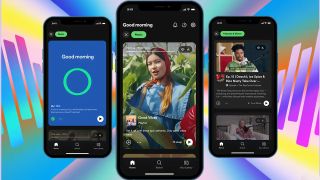
Spotify says it isn't bringing in-app purchases back to the iPhone, but new code found in its latest app suggests otherwise
By Oliver Haslam published
After saying it definitely isn't bringing in-app purchases back, Spotify's app might have spilled the beans... again.
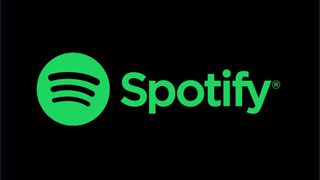
Spotify confirms in-app purchases on iPhone are not coming back for now
By John-Anthony Disotto published
Despite reports, Spotify will not be adding in-app purchases back on iPhone anytime soon.
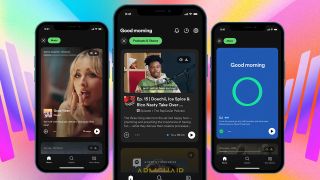
Spotify is making a major change to its iPhone app
By Oliver Haslam published
Apple's App Store subscription cut has stopped Spotify from offering in-app purchases, but something's changing.
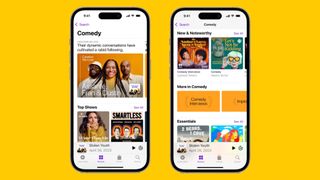
As Apple eats its lunch, third-party apps like Castro can't help but struggle to survive
By Oliver Haslam published
As rumors of podcast app Castro's demise swirl, is it any wonder third-party apps are dying?

Spotify is testing the ability to turn off its best feature and it could be brilliant
By Oliver Haslam published
Spotify is testing giving people the ability to turn off personalized recommendations and it could be a game-changer.

Wanna dip your toes in the Audiophile pool? These headphones are the way to go
By Tammy Rogers published
The Black Friday deals are looking slick this year, and these audiophile deals aren't to be missed.
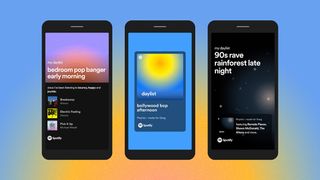
Spotify launches personalized playlist that changes throughout the day
By Becca Caddy published
Daylist is a new and ever-evolving playlist that matches a fresh selection of tracks to your listening habits.
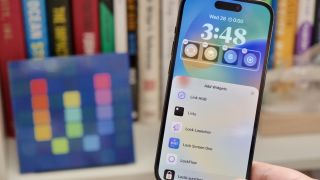
Shazam finally supports iOS 16's hottest new feature a year after it was released
By Oliver Haslam published
Shazam just gained support for iOS 16's Lock Screen widgets a year after the software update arrived.
iMore offers spot-on advice and guidance from our team of experts, with decades of Apple device experience to lean on. Learn more with iMore!
